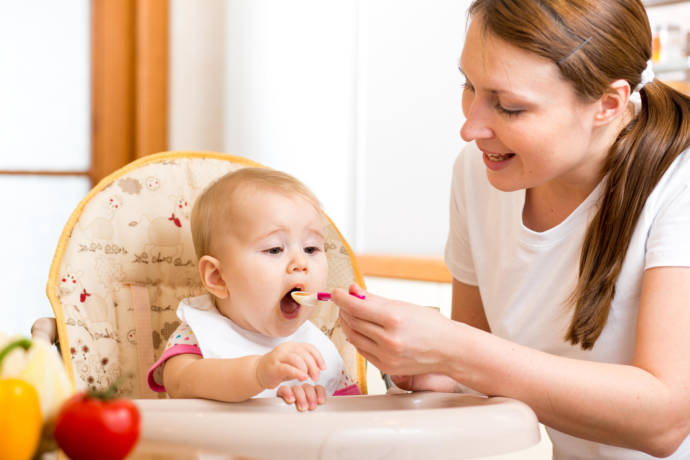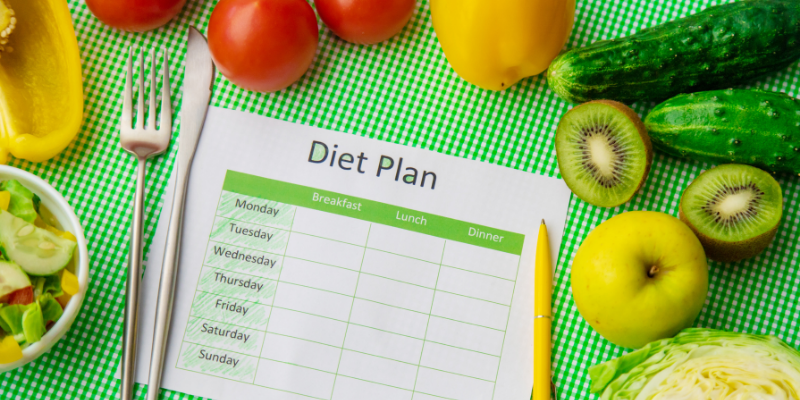Infancy is the first year of life is a prime time for growth and development of the baby physically and emotionally. The food that the infant takes at this time has long term effect on the child’s body weight, health, immune system and overall aging.
Babies, in their early growing up stages, require a lot of energy and nutrient supplements. The hunger patterns observed in their growing stages would be unpredictable. They would not be hungry at the same time everyday.
It becomes a cause of concern to the parents and, mealtimes are not exactly the most awaited time for the babies and their parents.
If you wish to fulfill your baby’s nutritional needs, you need to understand their patterns and, what they require the most. Here are a few insights into baby food requirements for you to understand your baby much better.
For your toddler, getting food rich in vitamins, minerals, carbohydrates and other healthy ingredients will be really important. A little more or less in diet chart can lead to a lot of complications.
It is always preferable to take advice from the pediatrician before proceeding with the diet chart of an infant.
Until 2 years, it is really a crucial stage of every individual child as this is the base stage upon which the whole life of the child will depend. Proper food with good health will take him to a long way. Let’s have a look in this article.
Solids: Is your baby ready?
Before you introduce your baby to solids, it is necessary to find out if your baby is ready for solids or not. There are few cues that help you understand this better
- Your baby comes over to you when the food is placed nearby, and grabs at the food or the spoon
- Opens the mouth when food is being offered
- The digestive and immune system respond to the solids that are being offered
- Mouth and tongue action in perfect sync such that the baby can push the food inside
- Kidneys working perfect enough to handle the load created by the solids
If the above mentioned points are in place then you baby is indeed ready for solids. You should introduce solids only after your baby reaches six months.
Even when your baby reaches the age of six months do not start off the solids if even one of the above mentioned cues are not in place. Starting solids too early or too late could cause major issues to the child
Starting too early can cause poor growth and diarrhea in the baby while starting too late can lead to poor growth along with iron deficiency and feeding related issues thus reducing the nutrients and in turn energy levels in the baby.
The first food for baby
Infant cereals are the best way to start introducing the baby to solids. Mashed foods like mashed tomatoes or rice could increase the baby’s interest in food.
Meat or chicken in boiled form could be introduced to the baby. Anything healthy should be the baby’s first food
Introducing solids
While introducing solids be prepared for the mess your baby is just about to make while eating. Your baby will not start eating at the first go.
So, you need to be calm and patient. You should allow the baby to spit the first few times before he/she gets used to the solids. The baby should be seated comfortably while eating
Post six months
With time, you could introduce your baby to chewy foods too. Vegetables, fruits, chicken, meat etc. could be fed to the kids once they reach the age of 9 months or so. Of course, it is best if the baby has breast milk till about a year as their main nutrient source.
A small portion of cow’s milk can be introduced at the age of 8 months as the kid needs proteins and other nutrients which are best availed with cow’s milk.
Remember, your baby may be allergic to some foods or would need more nutrient supplements. You should ideally consult a doctor regarding food and nutrients while feeding your baby in the early stages of growth.
Birth to 4 months
It is best for both the mother and the baby. Breast milk has the most nutrient mix for infants. It’s full of antibodies, antimicrobial factors, enzymes, and anti-inflammatory factors and fatty acids.
All these promote best brain development of the baby. It helps the infants to fight off several stomach and respiratory infections. If breast milk is not possible due to unavoidable reason infant formula milk can be introduced.
4 to 8 months
| Item | 4 to 6 months | 7 months | 8 months |
| Breastfeeding or formula | 4 to 6 feedings per day | 3 to 5 feedings per day | 3 to 5 feedings per day |
| Dry infant cereal – rice | 3 to 5 tbs. single grain iron fortified cereal mixed with breast milk or formula | 3 to 5 tbs. single grain iron fortified cereal mixed formula | 5 to 8 tbs. single grain cereal mixed with formula |
| Fruits—banana, orange, | 1 to 2 tbs., plain, strained 1 to 2 times per day | 2 to 3 tbs., plain, strained twice a day | 2 to 3 tbs., strained or soft mashed twice a day |
| Vegetables—sweet potato, carrots, beans | 1 to 2 tbs., plain, strained in soup form 1 to 2 times per day | 2 to 3 tbs., plain, strained twice a day | 2 to 3 tbs., strained, mashed, soft twice a day |
| Meats and protein foods | None | 1 to 2 tbs., strained in soup form twice a day | 1 to 2 tbs., strained twice a day |
| Snacks | None | Arrowroot cookies, toast, crackers | Arrowroot cookies, toast, crackers, plain yogurt |
9 to 12 months
| Item | 9 months | 10 to 12 months |
| Breastfeeding or formula | 3 to 5 feedings per day | 3 to 4 feedings per day |
| Dry infant cereal with iron | 5 to 8tbs. any variety mixed with formula | 5 to 8 tbs. any variety mixed with formula per day |
| Fruits | 2 to 4 tbs., strained or soft mashed twice a day | 2 to 4 tbs., mashed or strained, cooked twice a day |
| Vegetables | 2 to 4 tbs., mashed, soft, bite-sized pieces twice a day | 2 to 4 tbs., mashed, soft, bite-sized pieces twice a day |
| Meats and protein foods | 2 to 3 tbs. of tender, chopped twice a day | 2 to 3 tbs., finely chopped, table meats, fish without bones, mild cheese twice a day |
| Snacks | Arrowroot cookies, assorted finger foods, toast, crackers, plain yogurt, cooked green beans | Arrowroot cookies, assorted finger foods, cookies, toast, crackers, plain yogurt, cooked green beans, cottage cheese, ice cream, pudding, dry cereal |
12 months to 24 months
Growth slows to a certain extent during the toddler years of 1-2 years, but nutrition still remains a top priority. This will be the time to give up bottles, breastfeeding and start the baby to eat independently.
The baby is now learning to eat all foods and accepting new tastes and textures of food. It is the time to start getting what they need through a variety of foods.
The amount of food required by each child differs and so a personal judgment has to be made along with the child’s demand and the nutrition required.
Below is given a rough chart of the requirements of a toddler of two years. This can be taken as a guide line from the first year itself.
Grains Three ounces of grains should be a part of daily diet of a toddler. 1 ounce is equal to 1 slice of bread, 1 cup cooked cereal or ½ cup rice
Vegetables 1 cup softly cooked vegetables must be a part of the daily diet.
Fruits 1 cup cut fruits make a part of the meal.
Milk Two cups of milk are essential at this age. 1 cup of milk is equal to 1 cup yogurt, 2 ounces natural or processed cheese.
Meats and lentils Two ounces of any type of meat or beans will help. 1 ounce equals to 1 ounce of meat, poultry or fish, ¼ cup cooked dry lentils, or 1 egg.
Food chart for babies till two years
Food chart for baby till 6 months
As you know that, for every baby feeding with mother’s breast milk is an important consideration till he/she is 6 months old.
Babies get all types of nutrients along with vitamins, minerals and proteins in this milk. You don’t have to feed the baby with any other foreign food materials. This is the stage when baby will develop antibody in his body.
Food chart above 8 months
Food after wake up
Now, it depends on the time when your baby gets up early in the morning. If you baby gets up at 6 am in the morning, you can feed your baby with milk. But if your baby gets up at around 8 am or later, do not make him feed the milk. Rather, you can make a breakfast which is milk based.
Baby breakfast on and after 8 am
You have variety of healthy ingredients which you baby can consume as the morning breakfast. Some of them are:
- Rice milk cereal
- Moong dal soup
- Apple rice cereal
- Apple oats porridge
- Alta halwa
- Apple ragi halwa
- Chickpeas soup
- Sago carrot payasam
- Sweet corn vegetable soup etc.
Mid morning food for babies
Just after breakfast, another time for making him/ her feed is 10-10:30 am.
There is also a list of food which your baby can consume during this period. Have a look at the following:
- Papaya
- Avocado
- Banana
- Steamed kerala banana
- Melon
- Steamed apple
Lunch time for babies 11:30-12:30
You should not make the lunch time of your baby delayed as yours. You should be really particular about his lunch time. The food list you can get to choose for lunch are:
- Khichdi with dalia and vegetables
- Rice khichdi
- Dal and tomato khichdi
- Rice with potato
- Rice with smashed fish
- Rice with chicken stew
Make sure that the rice you are using for khichdi is broken into pieces. Your baby cannot digest the long grain rice. You can even over boil the rice.
Mid noon food 2:30-300pm
This is the time you should make your baby consume some light food rich in vitamins such as fruits or veggies in steamed and boiled form
Evening snacks time 5-6pm
The food ingredient you must feed your child during this time are:
- Carrot in smashed form
- Ragi malt
- Almond milk
- Juice smoothie
- Millet or porridge
Dinner 7- 8pm
It is the dinner time and you need to feed your baby with something solid. The options are:
- Rice with dal water
- Veggies with porridge
- Khichdi
- Rice with boiled chicken pieces
- Tomato rasam with steamed vegetables and finely cooked rice
Bed time food 9- 10pm
Just before your baby is going to sleep, you can make her consume some milk. Light wheat biscuits smashed in milk can also be consumed.





